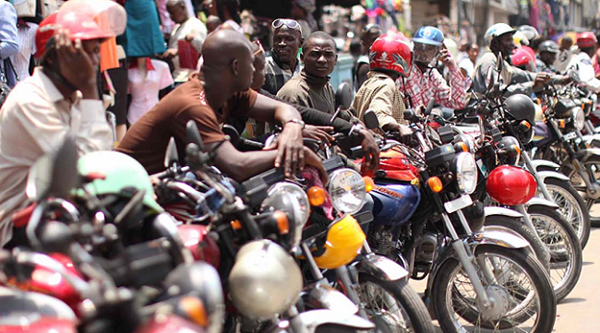In a major policy shift aimed at formalizing Ghana’s growing informal transport sector, the government is moving to introduce strict regulations for commercial motorcycle and tricycle operations, popularly known as okada and aboboyaa.
The proposed changes, contained in a draft amendment to the Road Traffic Regulations, 2012 (LI 2180), will require all riders operating for commercial purposes to either belong to a licensed transport union or be employed by a registered motorcycle company. The move is intended to bring structure and accountability to a sector that has long operated in regulatory limbo.
Transport Minister Joseph Bukari Nikpe made the announcement on Monday, April 7, 2025, during a national stakeholder consultation in Accra. He said the new framework will also include mandatory safety measures, rider training, and regular vehicle inspections.
“Our goal is to protect both riders and passengers by ensuring that only trained, properly licensed individuals operate commercial motorcycles and tricycles,” Mr. Nikpe said.
“This is about safety, accountability, and professionalising a service that many Ghanaians rely on every day.”
Under the proposed changes, commercial riders must also be at least 25 years old, and failure to comply with the union requirement will attract fines of up to 100 penalty units, imprisonment, or both.
The consultative meeting brought together key stakeholders including the MTTD, GPRTU, okada rider associations, civil society groups, and other industry players.
A Sector in Transition
The okada business has become a crucial part of urban and peri-urban mobility, especially in areas with poor road infrastructure or limited access to traditional public transport. In many communities, they are the fastest and most efficient way to navigate congested or remote areas.
However, the sector has also faced criticism over safety concerns, lack of insurance coverage, and the absence of proper identification and vetting for operators.
Way Forward
The Ministry’s move is the first of several nationwide consultations aimed at finalizing the draft legislation. If passed, the new regulations will pave the way for the official recognition and integration of okada services into Ghana’s broader transport system.
“This is not an attempt to ban okada,” the Transport Minister clarified. “It’s an effort to ensure that the service is safe, reliable, and sustainable for the long term.”
Read Also: No more long lines: SIM re-registration goes fully digital in June
The government says it will also work with transport unions and stakeholders to roll out training programs and create employment pathways through formalized okada operations.

























